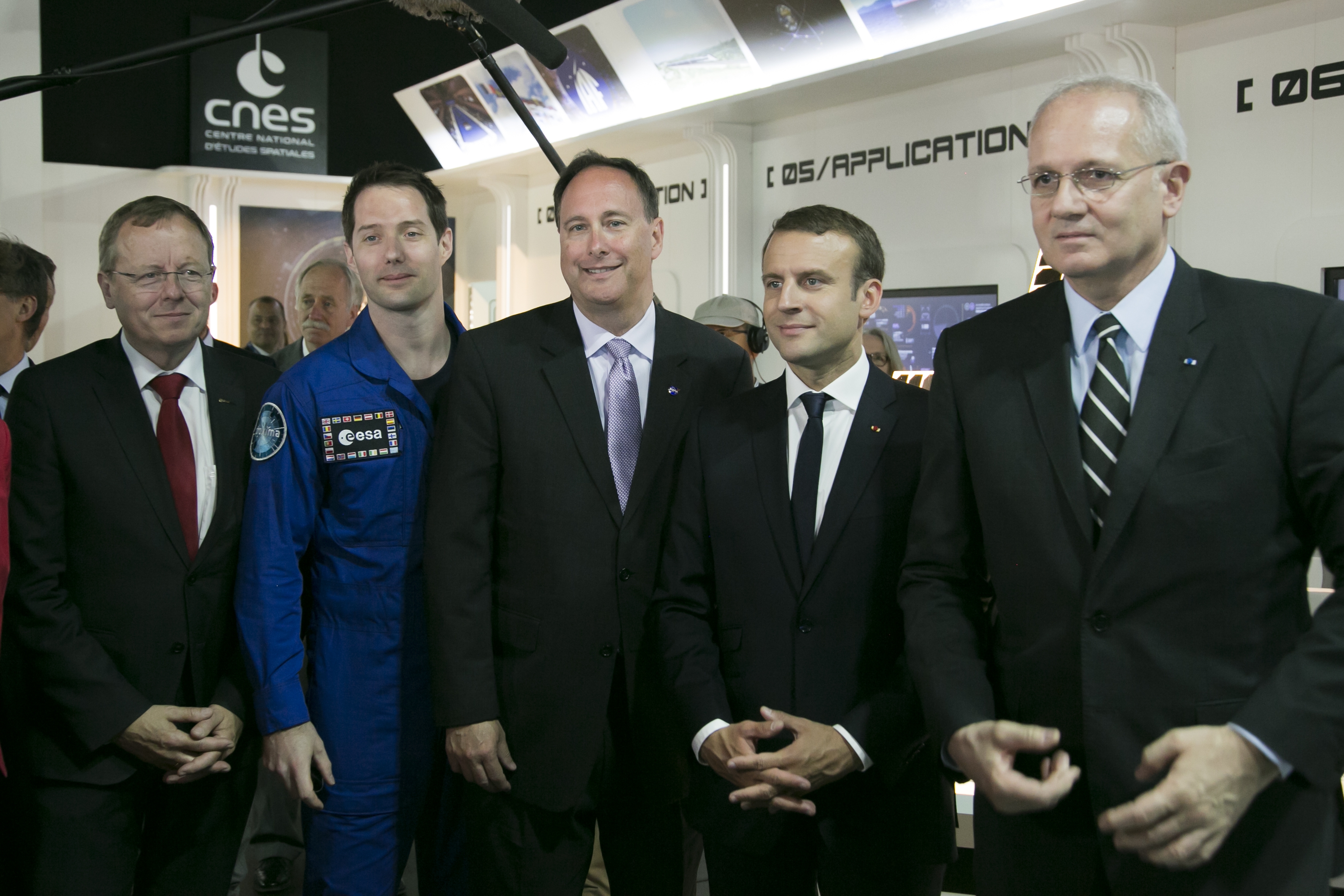52nd International Paris Air Show President Macron visits CNES Pavilion

During his visit, President Macron was able to view exhibits on Ariane 6 launcher programmes, the MERLIN atmospheric methane-measuring satellite and Mars exploration projects, with a presentation of the immersive virtual-reality feature recreating the environment of the red planet. CNES’s five domains of activity—Ariane, sciences, Earth observation, telecommunications and defence—are on display in the pavilion, with a special focus on innovation, climate and exploration.
Innovation. It is by innovating that CNES is inventing the future of space. Alongside Ariane 6, the Prometheus low-cost engine and Callisto reusable launcher stage projects are on show in the CNES Pavilion. In another area, where it is helping to fuel France’s economic development, CNES is working hard to spur new series of products like nanosatellites. The ANGELS demonstrator, designed to support missions of scientific, social or commercial benefit, is the first result of this fine adventure.
Climate. A little over a year ago, France ratified the Paris Agreement on climate. To illustrate its commitment to curbing climate change, CNES is presenting two satellites: MERLIN, which is set to measure concentrations of atmospheric methane, and MicroCarb, which will map sources and sinks of carbon around the globe. Both missions will thus be working towards the goal of making our planet great again.
Exploration. Looking back at Thomas Pesquet’s Proxima mission, CNES is presenting the Aquapad experiment the French astronaut conducted on the International Space Station (ISS). Aquapad is designed to enable faster and more effective testing of drinking water, a key requirement for human spaceflights. The Mars 2020 rover, the SuperCam instrument and a Mars immersive virtual-reality feature are also on view.
_____
Contacts
Fabienne Lissak Tél. 01 44 76 78 37 fabienne.lissak@cnes.fr
Pascale Bresson Tél. 01 44 76 75 39 pascale.bresson@cnes.fr
Raphaël Sart Tél. 01 44 76 74 51 raphael.sart@cnes.fr
 cp097-2017_-_inauguration_siae.pdf (pdf - 352.19 KB)
cp097-2017_-_inauguration_siae.pdf (pdf - 352.19 KB)